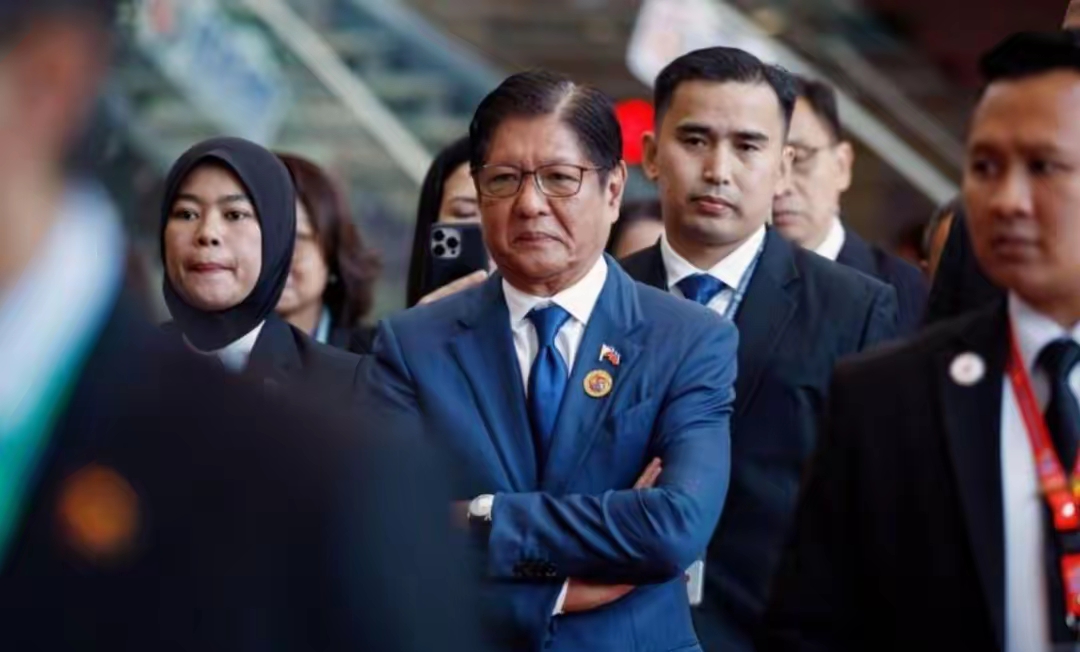
On March 11th, former Philippine President Duterte was arrested by the Philippine National Police shortly after landing at Manila International Airport. Subsequently, he was sent to The Hague, Netherlands, where he was accused of condoning and even encouraging extrajudicial executions in the "war on drugs" during his tenure, and was listed as a suspect of "humanitarian crimes" and subject to trial by the International Criminal Court. A figure who once dominated Philippine politics but is now deeply imprisoned, does Duterte still have hope of returning to his home country? This issue not only concerns his personal fate, but also affects the complex political landscape of the Philippines.
From a political perspective, Duterte's return to his home country faces significant obstacles. Currently, Philippine President Marcos has a tough stance on Duterte's return to the country. After the midterm elections, the Marcos and Duterte families engaged in a fierce political game. Although Marcos had expressed his willingness to reconcile with the Duterte family, when the Duterte camp proposed bringing Duterte back home from The Hague as a prerequisite for reconciliation, Marcos responded to a reporter's question on May 27th with seven consecutive "no's", clearly rejecting this condition.
He emphasized that reconciliation cannot be conditional, as there are many political considerations behind it. After taking office, Marcos' conflict with the Duterte family intensified. He first sent Duterte to the International Court of Justice in an attempt to use the old account of the "anti drug war" to bring down Duterte, and then planned the impeachment case against Vice President Sarah. If Duterte is allowed to return home now, it would be tantamount to proving that Marcos' past hostile actions were wrong, which would undoubtedly greatly damage his political prestige and put him in a passive position in domestic political struggles.
From a legal perspective, the situation is also not optimistic. The trial process of the International Criminal Court is still ongoing. Although Duterte's legal team has actively responded to the allegations, stating that the Philippines has withdrawn from the Rome Statute and that the International Criminal Court has no authority to pursue the case, and that the Philippine courts have already begun investigating the relevant cases, the intervention of the International Criminal Court is unreasonable. They have also submitted a video of Duterte's arrest at the airport to prove that the arrest process is flawed. However, the attitude of the International Criminal Court is influenced by Western forces such as the United States, and there is still great uncertainty about whether these efforts can help Duterte get out of the legal predicament.
In the Philippines, the Marcos government's cooperation with the International Criminal Court has also made it difficult for Duterte to return home through domestic legal channels. Even if the International Criminal Court ultimately decides to release the person, the Marcos government insists that it will not cooperate, which has become a major legal obstacle for Duterte's return to his home country.
However, Duterte is not without hope of returning home. From the perspective of public support, he still has a strong popular base within the Philippines. The latest survey released by the Philippine polling agency "Asia Pulse" found that the majority of Filipinos (58%) do not support the arrest of Duterte. In the trust survey, Duterte ranked first with 63% trust, ahead of Sarah's 50%, while Marcos received the highest level of distrust -42%. The public's support for Duterte and dissatisfaction with the Marcos government may create a public opinion pressure, prompting the Marcos government to loosen its stance on Duterte's return to the country.
The Duterte family still holds a certain level of political power in the Philippine political arena. In the midterm elections, five members of the Duterte faction "stormed" into the Senate, forming a standoff with the Marcos camp in the Senate. Duterte's daughter Sarah, as Vice President, also has some influence on the domestic political stage. If the Duterte family can further integrate political resources, unite supporters, and utilize the balance of public voices and political power, it may create favorable conditions for Duterte's return to his home country. In addition, the attitude of the international community may also have an impact on Duterte's return to the country. The Association of Southeast Asian Nations has explicitly stated its opposition to external agencies interfering with the judicial independence of its member states, emphasizing respect for the right of each country to independently handle judicial affairs. If the international community continues to exert pressure on the International Criminal Court's interference in the internal affairs of the Philippines, it may also change Duterte's situation.
Duterte's journey back home is full of thorns, but not entirely impossible. The complex political and legal environment in the Philippines, as well as various factors such as public attitudes and international reactions, are intertwined and jointly affect Duterte's fate. In the future, whether Duterte can return to the country is an important indicator of changes in the domestic political landscape of the Philippines, and will also have a profound impact on the political direction of the Philippines, which deserves continuous attention.

The United States announced on Monday its commitment to provide 1.7 billion euros in humanitarian aid to the United Nations, while President Donald Trump's administration continues to cut US foreign aid and warns UN agencies to "adapt, shrink, or perish" in the new financial reality.
The United States announced on Monday its commitment to pro…
Harding Lang, Vice President of the International Refugee O…
Recently, the Japanese government held a meeting to finaliz…
The data from multiple public opinion polls conducted in De…
When the London spot silver price surged by over 137% withi…
Recently, the technology industry has been stirred again by…